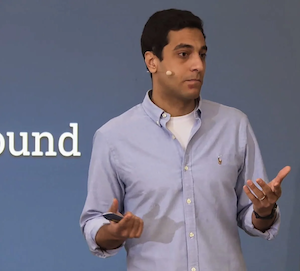Developing Countries
See the following -
3 Key Open Source Challenges in Developing Countries
 When I go back home and talk to people in the tech industry, or any other industry for that matter, about what I do and the topics I'm involved in daily, I'm usually met with bemusement at the idea of an Open Source Programs Office (OSPO). The concept of a company contributing to an open source project without obvious immediate financial benefit can be culturally strange to understand or explain. As someone born and raised in a country that has been trying to develop for quite some time, I understand and relate to that. There was a point in time when my only understanding of open source was that it was software that I could use without paying and without needing to wait for a specific issue or additional feature to be released. I could just do whatever I needed myself, locally. Open source faces many struggles in developing countries that make how it's perceived and its associations inaccurate and out of touch. I will discuss these struggles in this article.
When I go back home and talk to people in the tech industry, or any other industry for that matter, about what I do and the topics I'm involved in daily, I'm usually met with bemusement at the idea of an Open Source Programs Office (OSPO). The concept of a company contributing to an open source project without obvious immediate financial benefit can be culturally strange to understand or explain. As someone born and raised in a country that has been trying to develop for quite some time, I understand and relate to that. There was a point in time when my only understanding of open source was that it was software that I could use without paying and without needing to wait for a specific issue or additional feature to be released. I could just do whatever I needed myself, locally. Open source faces many struggles in developing countries that make how it's perceived and its associations inaccurate and out of touch. I will discuss these struggles in this article.
- Login to post comments
A Free, Open Resource to Solve Our Third World Problems
 Corruption, poverty, war, hunger, healthcare, education, safety. These are only a few of the problems faced by people in developing countries. Many of these problems are caused by exclusion, fear, intimidation, broken infrastructure, and lack of money, resources, access to information, and tools. These are hard problems to solve but, as Theodore Roosevelt said: "Nothing in this world is worth having or worth doing unless it means effort, pain, difficulty." At the core of open source are communities. Communities of like-minded individuals, working together, openly and freely sharing ideas and solutions for the benefit of others...
Corruption, poverty, war, hunger, healthcare, education, safety. These are only a few of the problems faced by people in developing countries. Many of these problems are caused by exclusion, fear, intimidation, broken infrastructure, and lack of money, resources, access to information, and tools. These are hard problems to solve but, as Theodore Roosevelt said: "Nothing in this world is worth having or worth doing unless it means effort, pain, difficulty." At the core of open source are communities. Communities of like-minded individuals, working together, openly and freely sharing ideas and solutions for the benefit of others...
- Login to post comments
Africa: 'Misguided' Nations Lock Up Valuable Geospatial Data
Many governments, particularly those in low-income countries, are "shooting themselves in the foot" by failing to give research and development communities open access to their caches of geospatial data, experts have warned. Read More »
- Login to post comments
As American Docs Resist MHealth, Developing Countries Drive Growth
A new study of the global mHealth market finds that consumers and developing countries are driving its growth, while physicians are reluctant to adapt.
- Login to post comments
Can GAVI’s New Partnership Model Crack ‘mhealth Pilotitis’ While Opening New Markets For Vodafone?
In the 13 years since it was founded to jumpstart stagnating global vaccination rates, the GAVI Alliance has achieved some remarkable results. Read More »
- Login to post comments
Early Bird Registration Now Open For ICT4D Conference
Registration is open for the Game Changers Summit, a technology conference designed to help churches, universities and organizations connect their global mission agendas with technology solutions for the developing world. Read More »
- Login to post comments
Gates Foundation’s Strict Open Access Policy may have Domino Effect
The Bill & Melinda Gates Foundation, a major supporter of health and development research, is to introduce an open access policy next month for the studies it funds that goes further than most other research funders. The policy “will enable other researchers to access the latest evidence and draw on it to advance their own research” to help tackle malnutrition, infectious diseases, and child and maternal mortality, writes Trevor Mundel, the foundation’s president of global health, on the organization's website.
- Login to post comments
Google Planning Wireless Networks To Connect The Next 1B People - WSJ
According to reports, Google plans on building cellular networks in Africa and Asia to connect the next billion Internet users. Read More »
- Login to post comments
Google To Fund, Develop Wireless Networks In Emerging Markets
Google Inc. is deep into a multipronged effort to build and help run wireless networks in emerging markets as part of a plan to connect a billion or more new people to the Internet. Read More »
- Login to post comments
HL7 to Offer its Standards for Free
In what is being touted as one of the most important breakthroughs in interoperability in a decade, the global healthcare standards-making body said it will spend the next few months planning for the move with the policy expected to take effect early next year.
- Login to post comments
India Is Quite Capable Of Sending A Rocket To Mars And Fighting Poverty At The Same Time
This morning, India successfully launched a rocket to Mars. Christened Mangalyaan, or Mars vehicle, the rocket is part of a scientific mission that cost a grand total of Rs 4.5 billion, or $73 million. In terms of the space business, that’s a bargain. By contrast, NASA’s next Mars mission will cost $671 million and do the same thing as India’s craft: orbit the red planet collecting data. Read More »
- Login to post comments
Innovative Funding Begets Innovative Development
Chlorinating water, a bug-killing intervention that the industrialized world largely takes for granted, can be prohibitively difficult in the developing world. Read More »
- Login to post comments
Internet For All: Alliance For Affordable Internet Founded
The newly formed Alliance for Affordable Internet will attempt to drive down Internet prices throughout the developing world. Read More »
- Login to post comments
Is The Global Fund Heading Backwards On Access To Medicines?
For nearly a decade, a bright spot on World AIDS Day has been steady growth in the number of people in developing countries accessing lifesaving HIV treatment [...]. But this year, Board discussions at the Global Fund to Fight AIDS, Tuberculosis and Malaria have set off alarm bells about a potential retreat from [...] policies that enabled such progress. Read More »
- Login to post comments
Is This The Best Humanity Can Do For The Philippines?
Now that a storm, perhaps the most powerful in recorded history, has struck the Philippines, with winds gusting to 170 mph, a storm surge exceeding 20 feet, and an estimated 10,000 people dead; now that bodies are piling up in such quantities that local officials are digging mass graves [...]; now the world is rushing to send help... Read More »
- Login to post comments